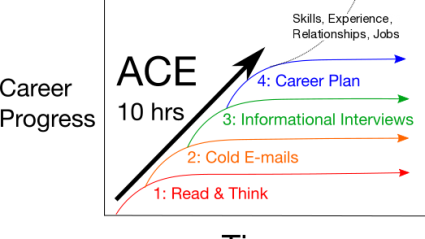Two of the most frequent questions that fellows ask during career counseling are, “For what jobs do I qualify? “or “Should I apply for this job?”. To answer these questions, career counselors begin with helping fellows to identify and speak assertively about career from their career trajectory that are factual and grounded in reality.
Post Doc Alumna: Anu Nagarajan, PhD
Industry Position: Senior Scientist
The OITE interviewed a NIH postdoctoral alumna who successfully landed a position in industry. She shares her career exploration process, job search strategies, and knowledge that she gained about her employability as a professional scientist.
OITE: Tell me the story about how you began to search for career options as post doc.

In 2014, to recognize Lesbian, Gay, Bisexual, Transgender, and Queer (LGBTQ) Pride month, the OITE Careers Blog published a post addressing job search and work environments for LGBTQ scientists called Happy Pride! This blog issue provides useful resources for scientists, their families, and allies in support of inclusive career decision-making and work environments.
For many NIH PhDs and post-docs in the sciences, the formula that you learned to use to find a successful academic career has been straight -forward:
Graduate Degrees + Research +Publications + Academic Job Talks + Academic Achievements (BS through PhD) = Successful Careers
You may not know that after the Post-Doc, there are some additional skills that can be added to the job search equation. Here they are:
Behavior based interviewing is an effective tool used by many science industry recruiters and graduate/professional school admissions officers. They differ from technical or scientific interviews because they are designed to give a glimpse into how you will perform in the future on “soft skills” by having you reflect and talk aloud about behaviors that you have done in the past.
One of the current trends in the application process for industry positions is to use video interviewing. Currently, business, science, and technology companies are using video interviews as the first step in the interviewing process after a candidate applies for a position because it saves money and staff time for the firms to screen candidates prior to inviting them for face-to face interviews.

Happy Halloween from OITE!
Today is a day for tricks, treats and all things spooky. While we hope you will enjoy the spirit of this holiday in your personal life, we also invite you to think about your professional life and what part of the job search scares you.
Searching job boards is a big part of looking for a new job. However, fraudulent employers can get through and post even on trusted websites. It is up to you to do your due diligence and make sure you don’t become the victim of a fraudulent job posting. This can be hard because often fake employers are very savvy in how they market themselves. It is also difficult to know what is real and what is fake if you aren’t familiar with common customs and practices within the United States.


Perhaps more so than ever, it seems that finding a well-paying and rewarding job can be a difficult task for young adults. According to analysis of the 2014 Current Population Survey, median income for people between 25 and 34 has decreased in every major industry since the Great Recession, with the exception of the healthcare industry.

